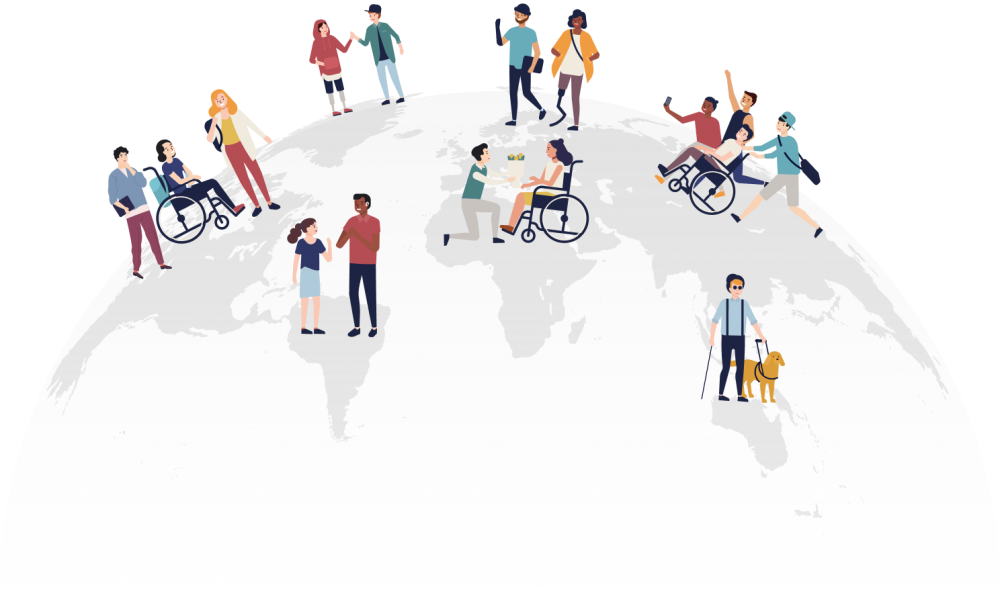[Tools & Resources]

Imagine a world where everyone, regardless of ability, can navigate their surroundings with ease. That's the vision driving Global Accessibility Awareness Day (GAAD), and at CIL, it's a vision we strive to bring to life every day.
Thursday, May 16, 2024, is the 13th Global Accessibility Awareness Day (GAAD)! The purpose of GAAD is to get everyone talking, thinking, learning, and recognizing the steps we need to take towards creating a world where people with disabilities have what they need to thrive, including better support systems that advocate for disability rights.
The foundation of GAAD aimed to raise awareness and promote digital inclusion for people with disabilities. But GAAD is also about encouraging innovation, improving the quality of lives, and building strong communities.
For us, Accessibility Awareness isn't just a one-day event—it's ingrained in the work we do. Founded by advocates and service providers, it is CIL’s core belief that everyone deserves a space tailored to their needs; a place where they can flourish and live their lives independently. Through our AccesSolutions program, we help provide a series of home modifications and specialized equipment to individuals with disabilities who may otherwise struggle to afford such enhancements. From ramps to interior lifts, grab bars to roll-in showers, our expertise lies in evaluating and meeting the diverse needs of people with disabilities. Whether we’re adapting existing residences or facilitating transitions from long-term care facilities back to their homes through programs like Money Follows the Person (MFP), our commitment remains strong, because we understand that true accessibility extends beyond physical and technological-driven accommodations; it's about empowering individuals to lead more independent lives.
Financial Support for Accessibility:
Financial constraints should never hinder access to essential modifications. At CIL, we offer Loans & Grants for Accessibility (LFA), catering to low-to-moderate income homeowners. With funding from various sources, including the Connecticut Department of Housing, we help facilitate these improvements, ensuring that economic status doesn't dictate one's right to accessibility.
Practical Tips for Accessibility:
Beyond our programs, we advocate for practical changes that enhance accessibility in everyday life. From swapping doorknobs for lever handles to incorporating non-slip options in bathrooms, these simple adjustments can make a world of difference in promoting independence and safety.
Community Integration:
Accessibility isn’t confined to individual homes; it extends to the very fabric of our communities. When CIL developers work with service providers to build community residences, we do so with accessibility in mind. Accessibility and age-in-place features enable residents to stay in their homes as they age, promoting stability within the community and allowing residents to maintain social connections and support networks. Designing homes with accessibility features in mind future-proofs communities against demographic shifts. As populations age, the demand for accessible housing will only increase. By incorporating these features from the outset, communities can better meet the needs of their residents over time. Ingraining accessibility into housing design also have an influence on broader urban planning decisions, leading to the development of more accessible public spaces, transportation systems, and infrastructure. In essence, ensuring that homes are built with accessibility and age-in-place features is a foundational step in creating communities that prioritize inclusivity, diversity, and long-term livability for all residents.
As we commemorate GAAD, we reaffirm our commitment to driving accessibility awareness daily. Every modification we make, every life we touch, is a step towards a more inclusive society. Let’s continue the conversation, learn from each other, and strive for a world where accessibility is not just a privilege but a fundamental right.











